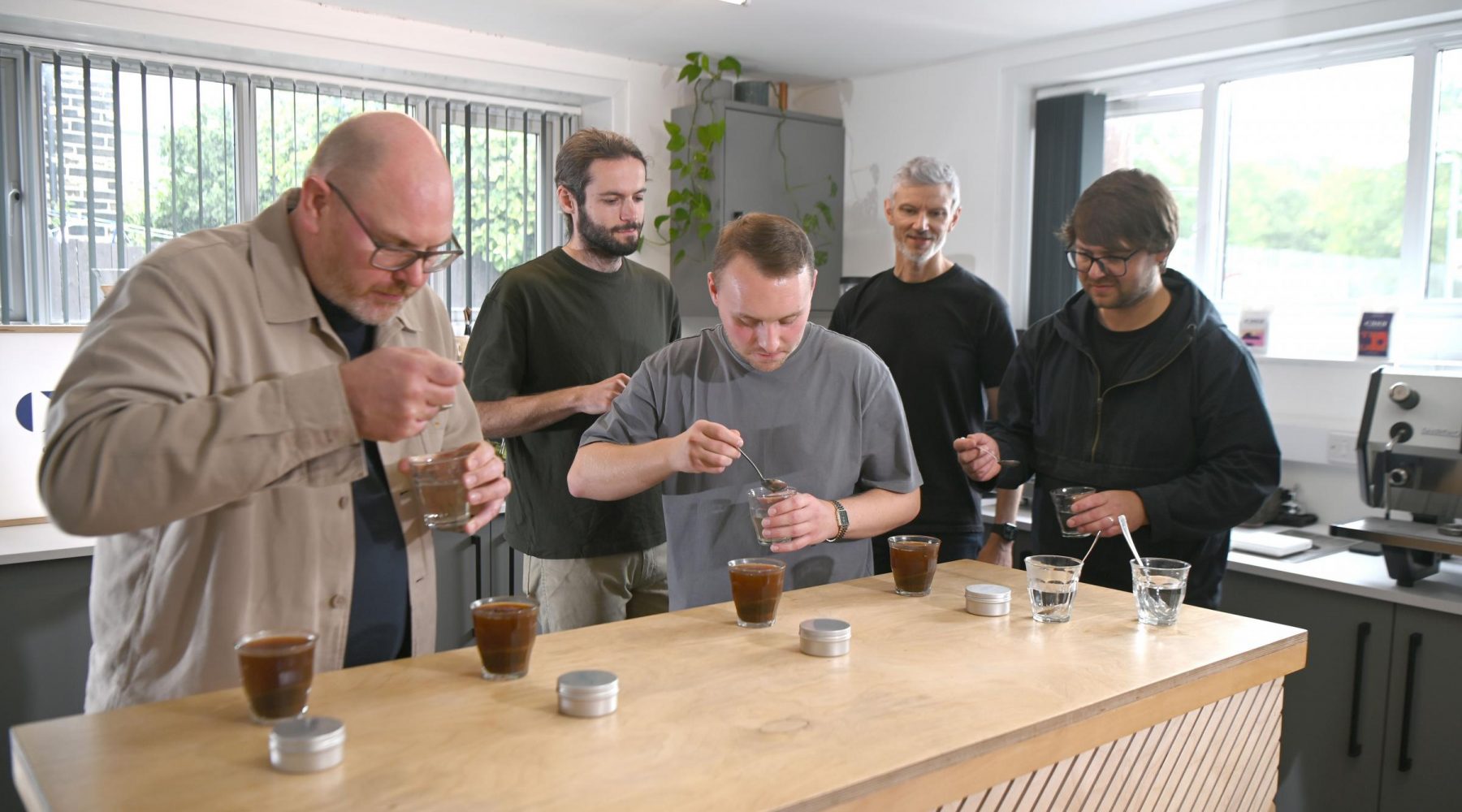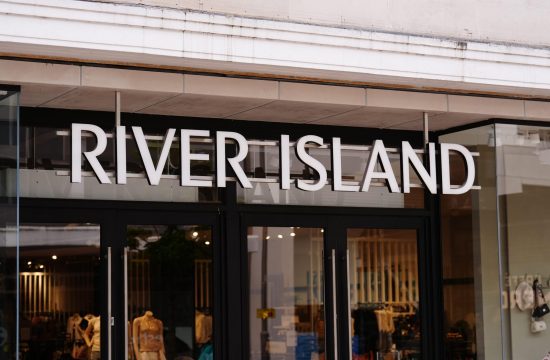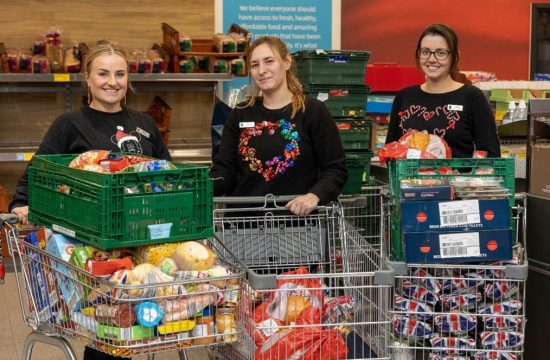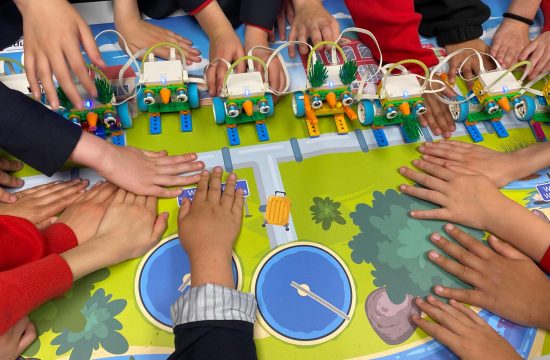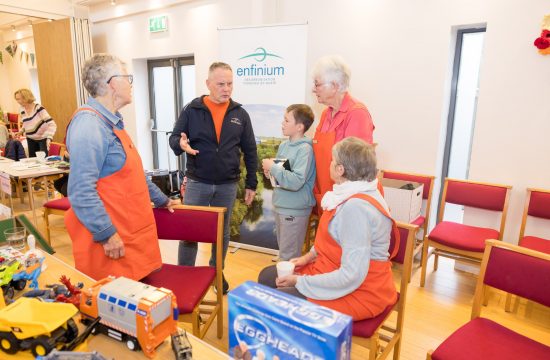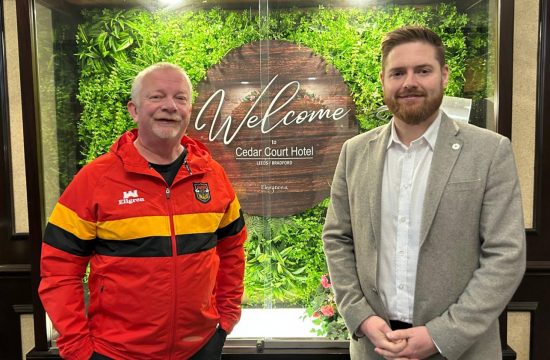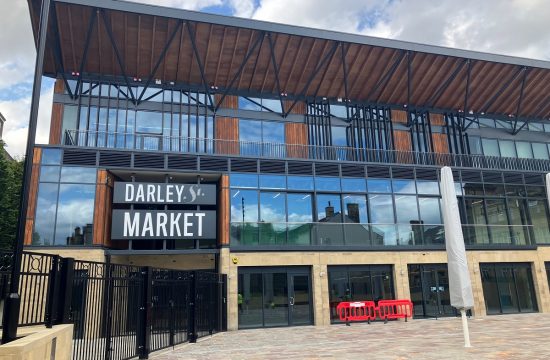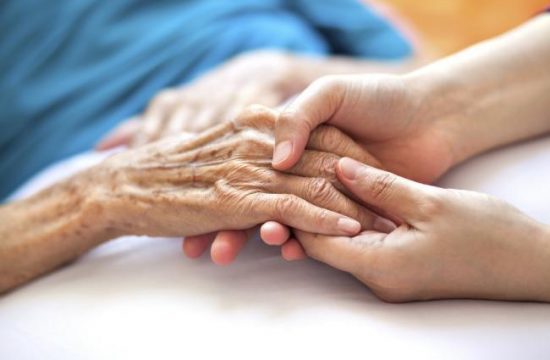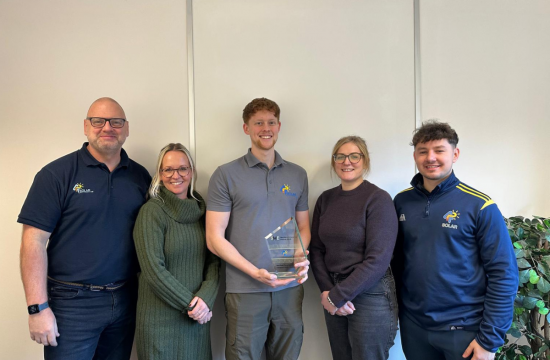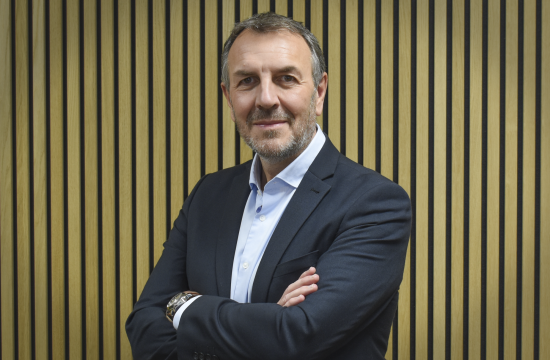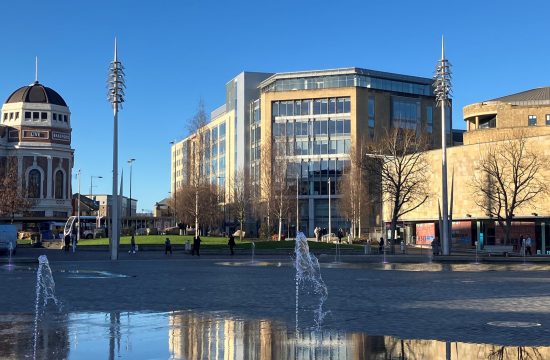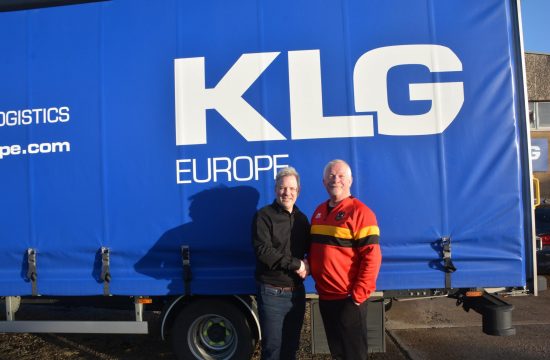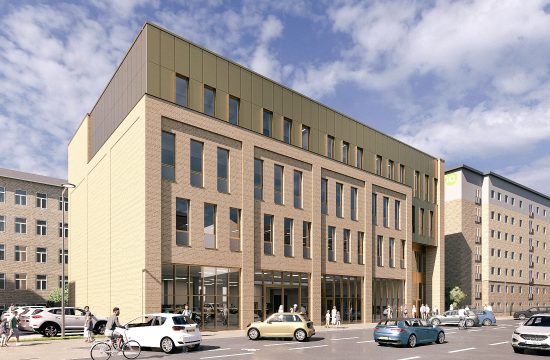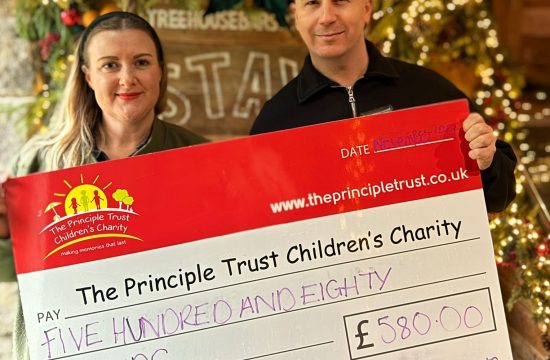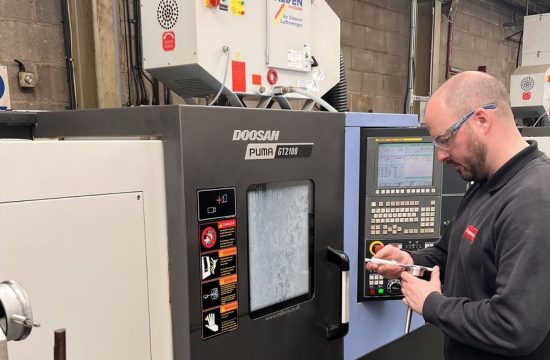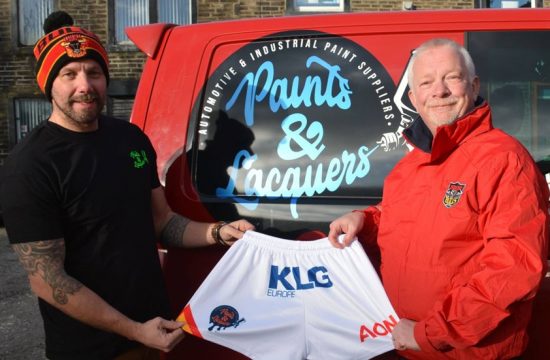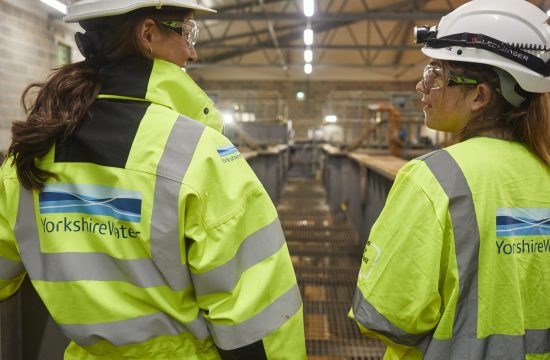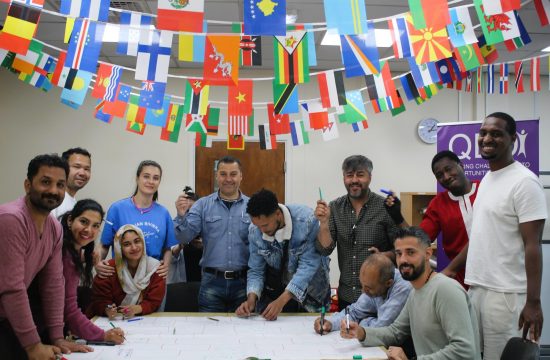TONY Di Rienzo started his coffee business importing Italian espresso machines from a spare room at his Keighley home.
The family business became the first company in Bradford to roast coffee – and today it is one of Yorkshire’s leading independent coffee roasters. Every batch is roasted by hand at Shipley-based Casa Coffee Roasters, which is celebrating its 25th anniversary.
Today it is Tony’s son, Nino Di Rienzo, at the helm of the coffee specialists, drawing on half a century of family heritage in the food and coffee scene. The business was originally Casa Espresso, established by Tony in 2000.

Nino Di Rienzo is owner and director of the company
Tony Di Rienzo is widely regarded as the pioneer of pizza in Bradford, opening the city’s first pizzeria – The Pizza House on Godwin Street – in 1974. He went on to run some of the best known Italian restaurants in the district. After selling The Pizza House in 1977 Tony opened Da Tonino in Shipley.

Tony Di Rienzo, third from left, at Da Tonino in 1978
“Dad came over in the 1960s, he worked as a waiter, in an ice-cream van and ran Keighley Golf Club for a while, with Mum. When he opened The Pizza House no-one knew what pizza was. Someone said ‘It’s nice but it won’t last’,” smiles Nino. “He sold Da Tonino in 1982 and the family moved back to Italy. We lived near Naples for 10 years then, in 1992, Dad opened Zio Tonino on Manchester Road.
In 2000, when he started Casa Espresso, coffee culture was starting up in the UK. Dad loved coffee and he loved fixing things. There was a growing demand for espresso machines but very few people knew how to fix them. He went to Italy and learned how.”
Tony was the first UK importer of Sanremo machines. With ‘Casa’ meaning ‘home’ in Italian, the name reflected the family roots. The business quickly became a supplier of premium coffee machines to top cafes and restaurants across the North. In 2007, after Tony passed away, Nino took over the business. In 2014, spotting a gap in the local market, he started roasting coffee beans. Casa Espresso Coffee Roasters was the first company to roast its own beans in Bradford, bringing ethically sourced coffees to the district, Yorkshire and beyond. It won the Bradford Means Business award in 2014.
“I saw a gap in Bradford for locally roasted, high quality coffee,” says Nino. “We started roasting small batches, ethically sourced and full of flavour. I’ve always been proud of what my dad built and where Casa started, it’s been a privilege to carry that forward. Casa has grown into something I’m really proud of, with amazing support from our community.
“After 25 years, it felt like the right time for a fresh look – reflecting how far we’ve come, while keeping the heart of who we are.”
Now the business has a new name – Casa Coffee Roasters – reflecting its journey from espresso machine importer to speciality roaster, supplying to coffee shops and restaurants in Yorkshire, Scotland, London and online. It supplies coffee blends to Saltaire Brewery and Ilkley Brewery. The range of single-origin coffees, roasted in house, is seasonal and keeps changing.
The roasting process is based on temperature and time. The beans, which come from the coffee cherry, are green before roasting. They’re placed in a gas-heated drum and the natural sweetness is drawn out. “Beans are either washed (soaked in water then dried) or natural (left to dry on patio beds). Cherries left to soak in the sun have a more funky, fruity taste,” says Nino.
Head roaster Jonnie Drake monitors the process on computer software. “The weather has an impact on roasting times – if it’s very hot or cold it affects the beans,” he says.

Jonnie releases the coffee beans onto the cooling tray after roasting
Through roasting, the beans lose moisture and change colour. “They puff up like Rice Krispies,” says Jonnie. The beans are released into a cooling tray, then to the packing station. For a blend, two coffees are roasted separately.
“The flavour depends how and where coffee is grown. Ethipian coffee is floral and fruity. Brazilian is caramel,” says Nino. “Our coffee also comes from Colombia, Nicaragua and Rwanda; it’s all fully traceable to the farmer.”
While Casa has evolved, its ethos is the Di Rienzo legacy of quality, sustainability and community. Nino and the team work with farms and independent importers to create social change and improve the supply chain. “The co-operatives invest in local schools and farming training,” says Nino. “Our Madremonte is from a women-only co-operative in Colombia. There’s a story behind each coffee.”
The story, with region, altitude and preparation, is provided with each coffee. Gotiti – “notes of blueberry, lime and lavender” – is from a coffee station in Ethiopia supporting underprivileged farmers and developing plans for underground water sourcing and solar tunnels. Charlestown, named after the Baildon area where the business is based, is a popular blend from Brazil and Papua New Guinea.
With coffee shops on every high street, tastes have expanded. “The first wave was coffee houses of the 1800s, then the Italians introduced coffee shop culture in the early 2000s. The third wave, from Australia, was a new movement of filter coffee. Perceptions of quality improved,” says Nino. “During Covid people were getting espresso machines and buying coffee direct from roasters. Our online sales grew.”
The whole team does the coffee tasting – a cupping process which involves tasting from a spoon. “It’s how we choose coffee and decide quality and profile.
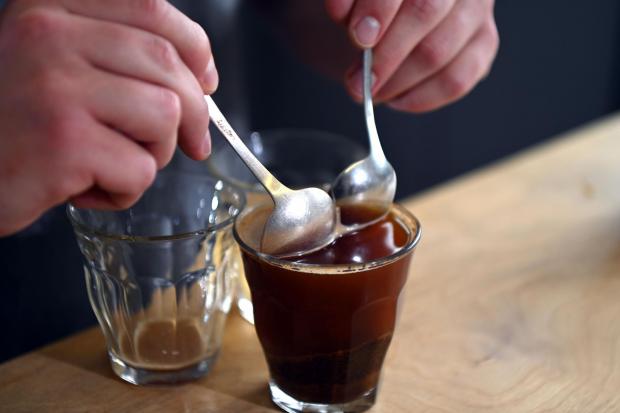
Removing the crust ahead of coffee tasting
It’s the universal way of testing,” says barista trainer Aidan Varney, placing coffee in each cup and filling with water, disturbing the ‘crust’ using two spoons.
The business runs barista training courses. Tasting sessions and open days are planned, to mark the anniversary.
* Visit casacoffeeroasters.co.uk



